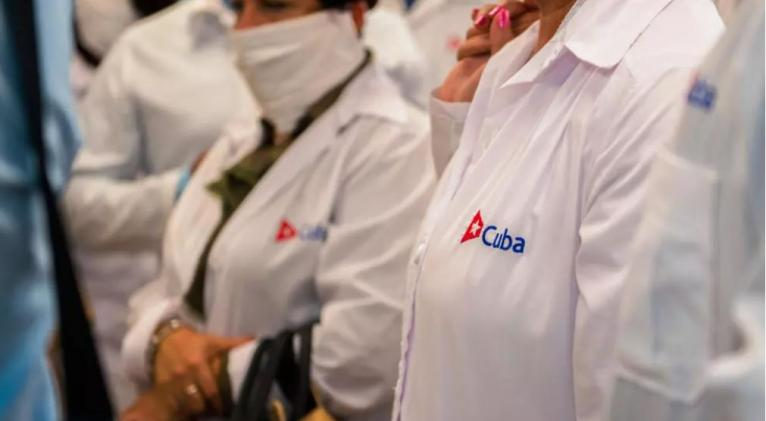
Cuba, Feb 26. - Cuba's collaboration in health is today a feat and a bastion of hope for many people in the world, said Samira Addrey, a member of the board of directors of the U.S. organization IFCO-Pastors for Peace.
In this time of aggression against Cuba, we must highlight the work of that country in terms of health and international collaboration, said Addrey, also a graduate of the Latin American School of Medicine (ELAM, for its acronym in Spanish) during an interview with Prensa Latina.
"I believe that the example of ELAM, which after 25 years continues to produce doctors for the world, is clear proof that Cuba has exported health, love and friendship to the world while the United States continues to export violence," she said.
Unfortunately, we are living in a country that has a broken health structure, where people with low economic resources do not count, which does not focus on the human being, explained Dr. Addrey.
Our task as ELAM graduates, as Cuba has trained us, is to return and focus here, being an example that another world is possible, she added.
She recognized the training received on the island “as doctors of science and conscience” and stressed that “in Cuba a type of doctor is trained that is humanistic and supportive.”
Samira, who attends the ELAM program at IFCO (Interreligious Foundation for Community Organization) highlighted the group's decades of experience in the solidarity movement with Cuba “and we want to take advantage of that history,” she emphasized.
In 1967, Lucius Walker founded IFCO and in 1988 he conceived the Pastors for Peace project that organized humanitarian aid caravans as a way to support victims of U.S. foreign policy in the region.
Walker promoted 21 Friendship Caravans from 1992 until his death in September 2010, to bring humanitarian assistance and medicine to Cuba in yellow school buses, without asking for authorization or a license from the authorities.
In the dialogue, Samira spoke about defending the legacy of the Reverend Lucius and the trust in their communities with the training they receive in the Caribbean nation.
For Addrey “Fidel Castro's dream continues to live, we have seen 25 years and we are going to see 25 more years of a prosperous ELAM.”
Personally, for me, as a 2020 ELAM graduate, Cuba has reinforced many of the values ??that I grew up with, confessed Addrey, born in Ghana.
Cuba embraced me and treated me like a daughter during the years I was there; in addition to the medical skills we learned in medical school, there is a level of family, of sense of being human that I have not experienced anywhere else, she confessed.
“In Cuba, everyone shows solidarity with you in whatever it takes and tries to support you in difficulties,” the doctor said.
She commented that Cuba is part of her heart “and I think it is important for me to pass that on to my daughter. She knows that there is a country far from Ghana where I was born, that we were educated there and that it has an immensely beautiful people.”
I believe, Addrey concluded, that the world should recognize Cuba beyond the things that are popular, you have to be there, you have to feel the people, live with them and feel their humanity. (Text and Photo: Cubasi)